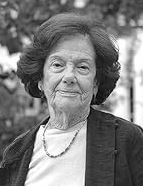

With this small group, he founded the Centre for Contemporary Portuguese History Studies (CEHCP) in 1975, which developed continuous and fruitful activity under his guidance, organising colloquiums and conferences with national and foreign professors and bringing to Portugal for the first time historians of great international renown such as Eric Hobsbawn, Maurice Agulhon, Albert Silbert, Patrick Joyce and Michel Vovelle, among others. Strongly committed from an early stage to a historiography that transcended the boundaries of national history, she was an early advocate of a comparative history of the 19th century, a period on which other members of the CEHCP were also working. This commitment was evident as early as 1981 with the organisation of a major Iberian colloquium on Liberalism in the Iberian Peninsula in the first half of the 19th century. The colloquium, which took place at the Calouste Gulbenkian Foundation, attracted a large and unexpected audience, demonstrating the widespread interest that existed at the time in this period, which the Estado Novo had practically excluded from the teaching of history, even at university level. The meeting followed another held the previous year by the GIS (later ICS-UL), also dedicated to this century, which had already given a clear sign of the growing interest in this period. The main difference lay in the Iberian and comparative dimension of the colloquium organised by the CEHCP, which was attended by several Spanish historians and also from other countries.
It is worth noting that this Centre, the CEHCP (later simply CEHC), was a dynamic and productive research centre for many years. Its commitment to internal debate contributed to this dynamic, promoting regular meetings between its members to discuss recent historiographical work and research and the theses being written by its doctoral students. Among other activities, the CEHC(P) organised, on its own initiative, several other international meetings, of which the following are particularly noteworthy, many years later the Portuguese-Brazilian colloquium Linguagens e fronteiras do poder (Languages and Frontiers of Power), held in conjunction with the Centro de Estudos do Oitocentos (Centre for Nineteenth-Century Studies) in Brazil, which took place in Lisbon in 2010 and was coordinated by Miriam Halpern Pereira with Brazilian historian José Murilo de Carvalho. The CEHC(P) also edited a collection of books entitled Portugal: Estado, Sociedade e Economia (Portugal: State, Society and Economy), which published valuable works mainly on the 19th century, with some forays into the 20th century. As the first study centre created at ISCTE, it was closed in 2014.
This work is financed by national funds through FCT - Foundation for Science and Technology, I.P, in the scope of the projects UIDB/04311/2020 and UIDP/04311/2020.
